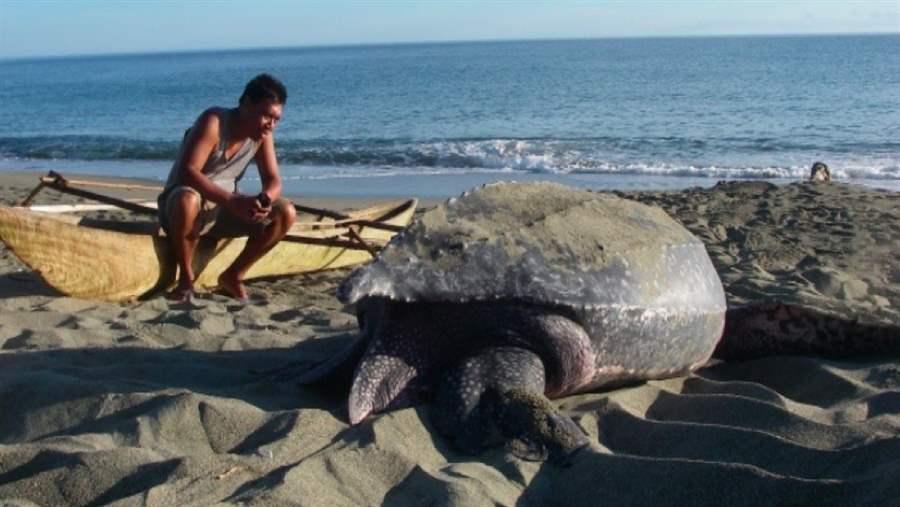Ricardo Tapilatu, Ph.D.
Research

Ricardo Tapilatu investigated the relationship among incubation temperatures, hatching success, and sex ratios of western Pacific leatherback turtles to determine how climate change affects global sea turtle populations.
Robert RumbrureGlobal climate change and the critically endangered western Pacific leatherback: Addressing the threat and saving the population
Ricardo Tapilatu died in 2022. Tapilatu was a faculty researcher and lecturer at the University of Papua’s Research Center for Pacific Marine Resources. He used his Pew fellowship to investigate the relationship between incubation temperatures, hatching success, and sex ratios of western Pacific leatherback turtles and develop computer models to determine how climate change was affecting global sea turtle populations. He also created a local outreach and education program to engage community members in a long-term ecological monitoring and conservation program.
The northern coast of the Bird’s Head Seascape in West Papua, Indonesia, is the last significant nesting area for the western Pacific leatherback sea turtle, a distinct and critically endangered subpopulation of the world’s largest turtle species. Researchers have observed a steep decline in the population in recent decades, and climate change poses an additional challenge for the species’ recovery. Research indicates that warming beach temperatures and sea level rise may reduce leatherback reproduction. Like other sea turtle species, leatherback hatchlings’ sex is determined by the incubation temperature of the eggs. Rising beach temperatures may be affecting the hatching success and sex ratio of new generations, potentially limiting the ability of populations to reproduce and recover.
Using a variety of sensors including data loggers that record nesting beach temperatures and advanced statistical models, Tapilatu gained new insights into interactions between Earth’s changing climate and sea turtle populations. His work informed policy development at local and national levels and contributed to science-based management of leatherback sea turtles throughout Southeast Asia and the Indo-Pacific.
